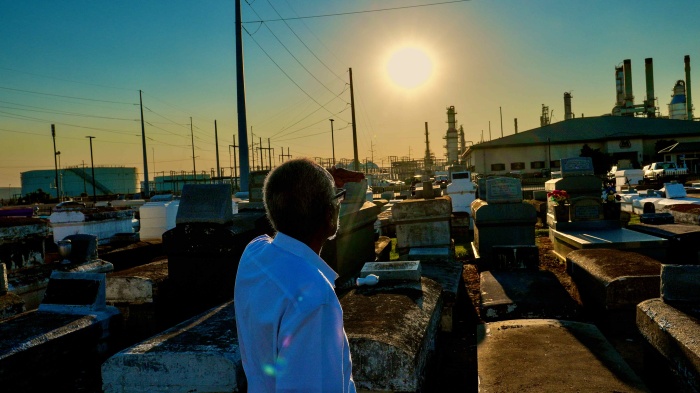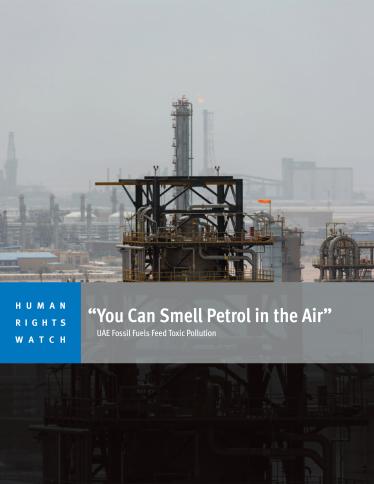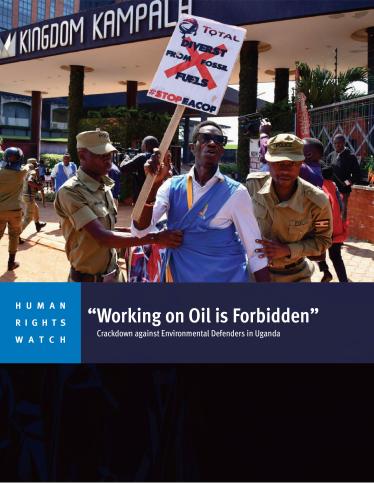“We’re Dying Here”
The Fight for Life in a Louisiana Fossil Fuel Sacrifice Zone


The Fight for Life in a Louisiana Fossil Fuel Sacrifice Zone


The 24-page report, “‘You Can Smell Petrol in the Air’: UAE Fossil Fuels Feed Toxic Pollution” documents alarmingly high air pollution levels in the UAE, which create major health risks for its citizens and residents and contribute to the global climate crisis. The UAE is one of the world’s largest oil producers and home to seven so-called “carbon bombs,” the world’s largest fossil fuel production projects. Air pollution and climate change are directly linked, as the burning of fossil fuels contributes to air pollution and drives climate change.

The 22-page report, “‘Working On Oil is Forbidden’: Crackdown Against Environmental Defenders in Uganda” documents the Ugandan government’s restrictions on freedom of expression, association, and assembly related to oil development, including the planned East African Crude Oil Pipeline (EACOP). Civil society organizations and environmental defenders regularly report being harassed and intimidated, unlawfully detained, or arbitrarily arrested.

The 73-page report “‘We Know Our Lives Are in Danger’: Environment of Fear in South Africa’s Mining-affected Communities” and video cites activists’ reports of intimidation, violence, damage to property, use of excessive force during peaceful protests, and arbitrary arrest for their activities in highlighting the negative impacts of mining projects on their communities. Municipalities often impose barriers to protest on organizers that have no legal basis. Government officials have failed to adequately investigate allegations of abuse, and some mining companies resort to frivolous lawsuits and social media campaigns to further curb opposition to their projects. The government should protect the activists.

This report describes the context for activism around The Lamu Port-South Sudan-Ethiopia Transport corridor project (LAPSSET) and associated development projects, and documents the obstacles activists face in speaking out publicly about their concerns. At least 35 activists campaigning against the region’s mega infrastructure and transport projects have faced threats, beatings, arbitrary arrests, and detentions.

This report finds that Congress failed to mitigate health risks associated with this form of mining when it voted to roll back a modest regulation to protect streams from mining pollution. In reversing the regulation, Congress made it easier for the coal industry to destroy mountains and bury the waste rock in streams without monitoring or addressing the environmental impacts, while relying on a deeply flawed industry-funded study that was not subject to peer review. In addition, the Trump administration abruptly withdrew funding from a study that could have established broad consensus around the practice’s health impacts in an apparently deliberate effort to prevent important information regarding the health risks of mountaintop removal mining from coming to light.
